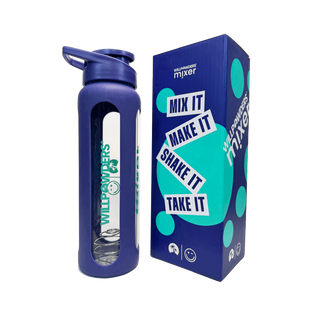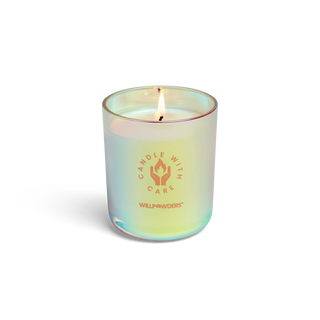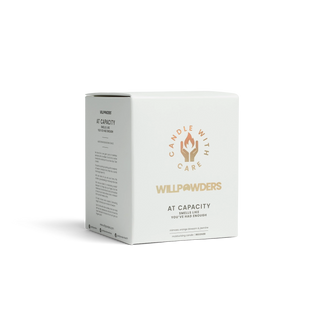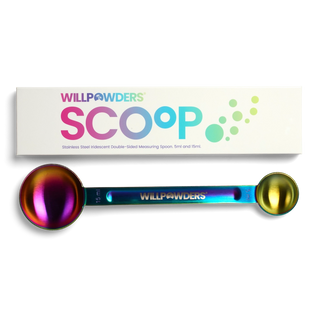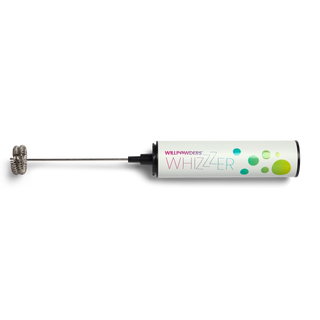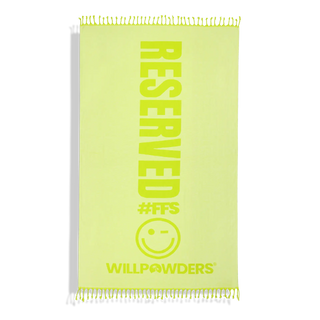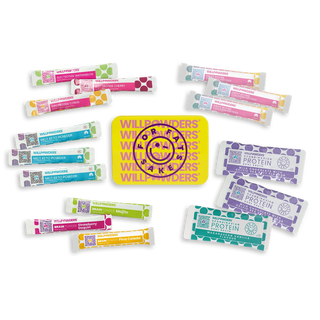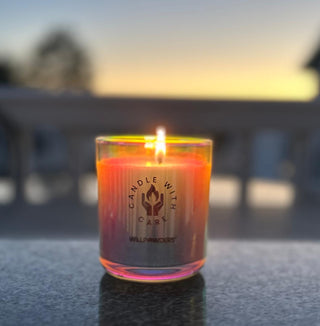
Hack Your Hormones
The Flickering Facts: Why Your Favourite Candles Might Be More Toxic Than You Think
Burning the midnight oil in more ways than one? You might just be…
At WillPowders, we pipe on A LOT about how ultra processed food can be detrimental to your health, and whilst that’s true, have you considered how you’re looking after the inner workings of your home as well?
By now, you’ve probably got wise to the fact that your supermarket shelves are lined with snacks, “meals” and drinks filled with damaging seed oils and fake ingredients, designed to keep you hooked and going back for more, but have you switched on to Big Food also trying to compromise your health in other ways?
These ways?
Convincing you that you need industrial strength cleaning products to wipe away the week’s grime, or that you need to scent your home with the power of the lab, where the only natural smells that diffuse are the blood, sweat and tears of the scientists in charge of formulating toxic fumes for you to “enjoy”.
I’m beginning to wonder what the hell their problem is and what have they got against the unwitting consumer?
Much of what we buy to clean and scent our homes shouldn’t get past the threshold, but often the quick fix, clever marketing and allure of the Mrs Hinch effect is just too strong to resist and our health and the environment becomes a second thought.
Don’t get me wrong, no one at WillPowders is telling you to shelve those cosy Friday nights illuminated by the gentle flicker of a candle lit room. We want you to enjoy those ambient dinner parties, and that bit of bubble bath self care that you’ve squirrelled out for yourself once you’ve got the kids to bed, we just want you to do it mindfully and safely. So, the next time you crack open the super foam to clean the bathroom, or you shove your hand down the loo that you’ve just swilled with bleach because that sticky boy wee is as stubborn as the very teenager who has imperfect aim, or you spend the evening comforted by the soft glow of the candle your partner bought you from the petrol station as an emergency “I’m sorry” gift (true story), just take note of how you feel after. How has your skin reacted? Have you all of a sudden and out of nowhere become a little breathless? Have your eyes started to burn? Has that ‘meh’ feeling you’ve worked so hard to shut down on your WillPowders Way reared its ugly head again? It might be subtle, but if you tune in, I can guarantee it will be there.
The Big Food Truth…
You would be right to ask why…why, if the ingredients used in our everyday products are so toxic, why are they used at all? It’s simple! They are the cheapest and most effective way of providing you with your end goal, your desired results so to speak - a moment of calm or a sparkling clean bit of joy. Big Food doesn't care if those moments cost you your health. They don’t care if they play havoc with your hormones or make the inflammation fire rage.
But We DO and we’re more than happy to shine a candle light on it. When you’re At Capacity, don’t lose sight of…


Paraffin (ahem…don’t you mean petrol?)
Lots of candles on the market are made using paraffin wax - they are the heavyweight champ of candle-making, but as a petroleum by-product, they do not belong in your home.
Yes, that’s right—what burns in your candle could have come from an oil refinery.
When burned, paraffin releases chemicals like benzene and toluene, which are not only bad for your lungs but can also mess with your endocrine system, potentially leading to reproductive issues and thyroid dysfunction. Benzene exposure has been extensively studied due to its significant health risks. One notable study highlights that benzene is classified as a carcinogen by the International Agency for Research on Cancer (IARC), with sufficient evidence linking it to acute non-lymphocytic leukaemia and other blood disorders. Exposure can lead to reduced production of red and white blood cells, causing conditions like aplastic anaemia and pancytopenia. Carcinogens are not your only concern because another study investigated the negative effects of toluene exposure, highlighting its severe impact on the central nervous system. This includes a condition known as toluene leukoencephalopathy, characterised by devastating neurological disorders such as dementia. Additionally, repeated exposure to toluene has been linked to increased incidence of neurological symptoms, performance deficits in neurobehavioral tests, hearing loss, and changes in visual-evoked brainstem potentials. So, that soft light? It might be hiding some shady business.
Soy and Beeswax
It’s okay, my candles are made of Soy or Beewax! The petrol station forecourt ain’t in my living room! Wrong! Soy and Beeswax, often hailed as the environmentally friendly alternative to paraffin, is an eco-friendly myth as many (most) are blended with paraffin or other additives that can be processed with chemical solvents, making them a far cry from health-friendly and therefore undermining their green credentials. Synthetic smells are often added and among them, Phthalates: These chemicals are commonly used to make fragrances last longer, much like the additives added to your shop bought loaf to extend its shelf life. When inhaled, phthalates can disrupt endocrine function, leading to hormonal imbalances and reproductive issues.
Whilst we seem to spend our lives trying to avoid these pesky xenoestrogens, scents that are synthetically added to our candles, air fresheners and diffusers have the power to trigger or exacerbate allergies as well. For allergy sensitive folk, this can be an absolute nightmare, especially if walking into perfume ladened department stores or the infamous bath bomb shop is synonymous with rolling around in hay, being covered in cats and dogs or rubbing their face in a big pile of pollen. For these people, avoiding anything that can trigger the onslaught of watery eyes, itchy skin and a nose that just won’t stop is life, and for those people it can often be a modest candle that catapults them into a day of misery.


Palm Wax
If you’re someone who not only cares about your health but the environment as well, consider giving Palm wax a wide berth. Palm wax is loved for its striking crystalline texture and firmness by candle makers, but the production of palm oil can have significant environmental repercussions, including deforestation and habitat destruction, particularly in Indonesia and Malaysia. This deforestation leads to significant biodiversity loss, threatening species like orangutans, tigers, and rhinos, which as a conscious consumer is something to think about the next time you opt for a cosy night shrouded by the glow of your Palm wax candle.
If you’re not phased by our furry friends being turned out, what about the impact on climate change? The conversion of forests to palm oil plantations releases large amounts of greenhouse gases. Peatland forests, which store vast amounts of carbon, are often drained and burned, releasing carbon dioxide and contributing to global warming. Ultimately, consciously deciding who you give your money to should be a priority, if only so you can sleep soundly at night. And whilst the effects on the wider environment is good enough reason to avoid Palm oil candles like the plague, perhaps studies suggesting that palm oil consumption may be linked to health issues such as increased cholesterol, inflammation, and certain cancer risks may be the reason why you say NO to palm. All of a sudden, the crystalline beauty might come at too high a price.
Gel Wax or Clear Culprit?
Gel wax candles are eye-catching with their transparent charm, but they come with their own set of CLEAR issues. Made from resin and mineral oil, gel candles can emit harmful chemicals that may irritate your respiratory system and disrupt your endocrine balance. It’s like burning a candle made of chemical cocktails—pretty to look at, but not so great for your health.
Much like their paraffin, soy and beeswax counterparts, gel candles often contain synthetic fragrances and dyes, which can release Volatile Organic Compounds like benzene and toluene when burned, as well as producing particulate matter, which can penetrate deep into the lungs and exacerbate respiratory conditions such as asthma and bronchitis. Like the wolf in sheep’s clothing, gel candles should be the epitome of a brief romance, or ideally a very decisive swipe left.
Candles, Air Fresheners, and Diffusers: The Toxic Trio
Essentially, swapping out your candles for diffusers or air fresheners might just replace one toxin with another, so think again. Many air fresheners and diffusers release synthetic fragrances and chemicals like phthalates and formaldehyde. Initially, formaldehyde was used primarily as an embalming agent and medical preservative. Its commercial production began in Germany in the 1880s and expanded to other countries by the early 1900s. Over time, formaldehyde found various applications, including in the production of resins, plastics, and as a disinfectant, all products you wouldn’t dream of sniffing up willingly.
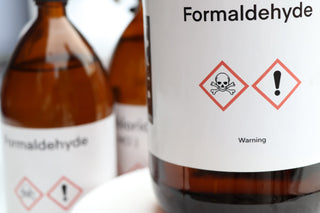

Irony or Omen?
At the risk of being a tad dramatic, remember, it was Damien Hirst, a famous British artist, who used formaldehyde to explore themes of life, death and preservation by preserving various animals in this compound, creating a stark contrast between the appearance and the reality of death. Could it be that this metaphor is in fact a warning to us all? If something has the power to preserve something forever, the laws of nature are in fact blurred. Highly potent, consumed at even at low levels can cause symptoms such as a burning sensation, coughing, and watery eyes. Classified as a human carcinogen by several health agencies, including the International Agency for Research on Cancer (IARC), long-term exposure has been linked to nasopharyngeal cancer and leukaemia. Not to mention, exposure can cause systemic toxicity, affecting the central nervous system and leading to symptoms such as headaches, dizziness, and nausea, as well as severe respiratory problems, including asthma-like symptoms, bronchitis, and other chronic respiratory conditions. But yeh, set it on fire or spray it in your living room. Thanks, Big Food!


So what’s the answer? How can we still achieve that sense of calm and that bit of sensory joy?
Enter the hero of the hour: The WillPowders candle, the candle that cares! Our Coconut Oil Wax Candle is made from our fave, the modest coconut and blended with essential oils. Offering a clean burn with none of the harmful chemicals found in its toxic counterparts, it’s the perfect way to light up your life without carcinogens and synthetic fragrances, keeping your hormones in check and preventing inflammation from reigning. It’s a flame you want!
It’s not just a candle, it's a biohacking, calming, moisturising, CLEAN, non-toxic candle which you can enjoy without the worry. Not only will the WillPowders candle keep you on your WillPowders Way, it's a self care double whammy! We don't half love ourselves some efficiency! Whilst it looks pretty, smells divine and won’t try and kill you, you can also use the melted coconut oil wax on your skin for ultimate moisturisation and hydration. Simply wait for the wax to melt, blow out the flame, dip in your digits and massage the natural wax onto your body for some convenient self love and appreciation. You couldn't deserve it more!
At Capacity? Need a little ‘you’ time? What are you waiting for? Light up, enjoy the burn and give your skin a drink! Cheers to taking control of your home and, in turn, your health!
Further Reading:
Hydrocarbons and VOCs: Burning candles releases hydrocarbons and volatile organic compounds (VOCs) like toluene and benzene. These compounds can contribute to indoor air pollution and have been linked to health issues such as headaches, dizziness, and even cancer in high concentrations12.
Particulate Matter: Candles also emit particulate matter (soot) which can affect respiratory health. A 2009 study highlighted that burning paraffin wax releases gases and VOCs that can damage DNA and lead to lung problems3.
Customer Stories

Tracy
I can’t thank WillPowders and Davinia enough for how things are mentally, emotionally and physically for me now. It’s unbelievable! I think everyone who battles eating disorders should know this...

Claire
I never thought I’d be at my slimmest and healthiest at 49. After reading Davinia's It's Not a Diet, I started clean eating, fasting, weights and Pilates. I made it...
Disclaimer
Our blogs are written with love in the hope that they go some way in helping you feel like the rockstar you are, and whilst we do our due diligence, research like maniacs and fact check our stuff, we know everyone’s journey is different. They are intended to educate and empower you, not usurp medical advice. We would never advise you to stop, adjust, or modify any prescription medication without the direct supervision of your healthcare practitioner, but don’t be afraid to talk to your doctor about your new found knowledge, brought to you by the marvels of nature because they don't know everything! Blogs are always informed by Davinia but often written by a member of the team. Not all blogs reflect Davinia's experiences and sometimes provide alternative perspectives

